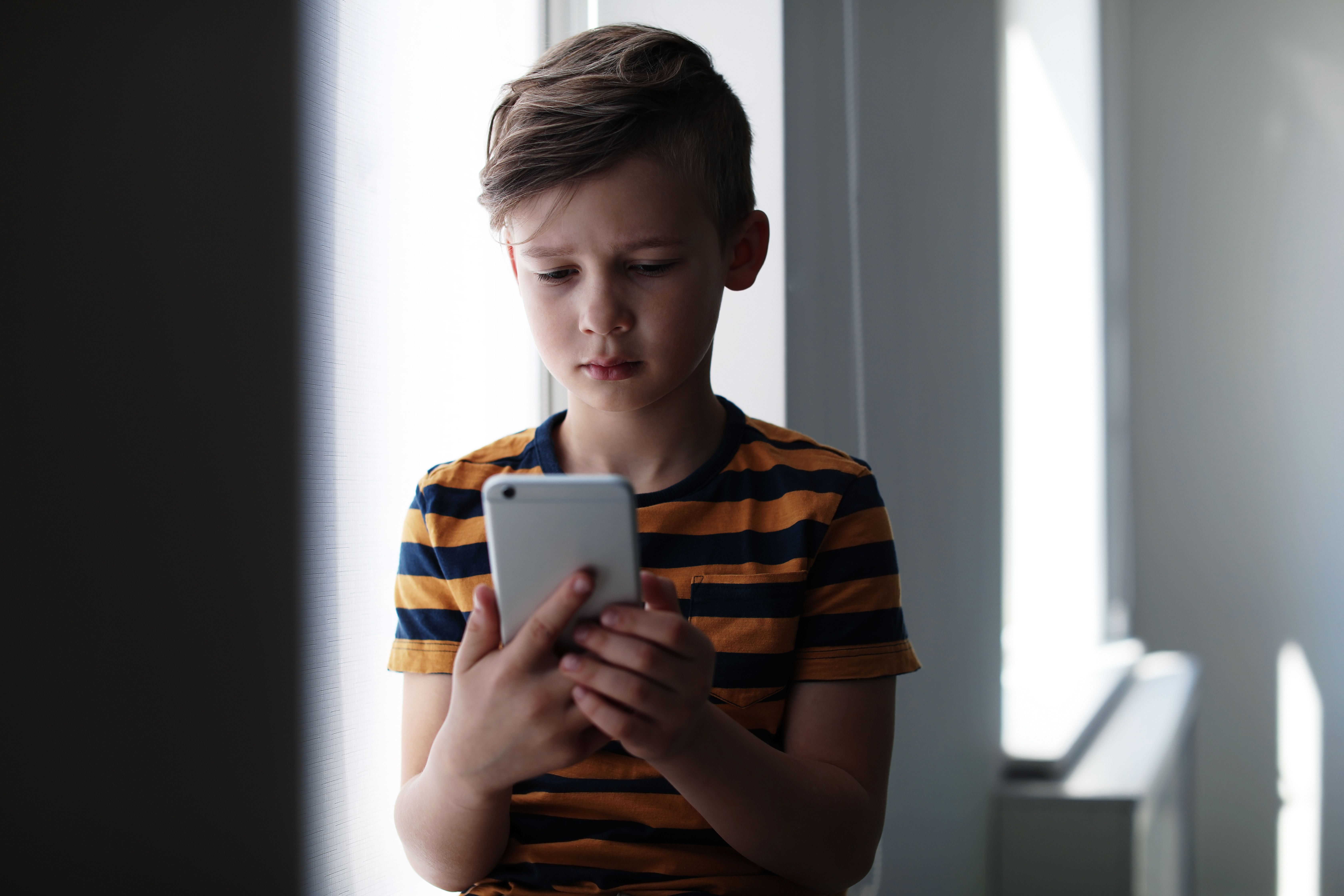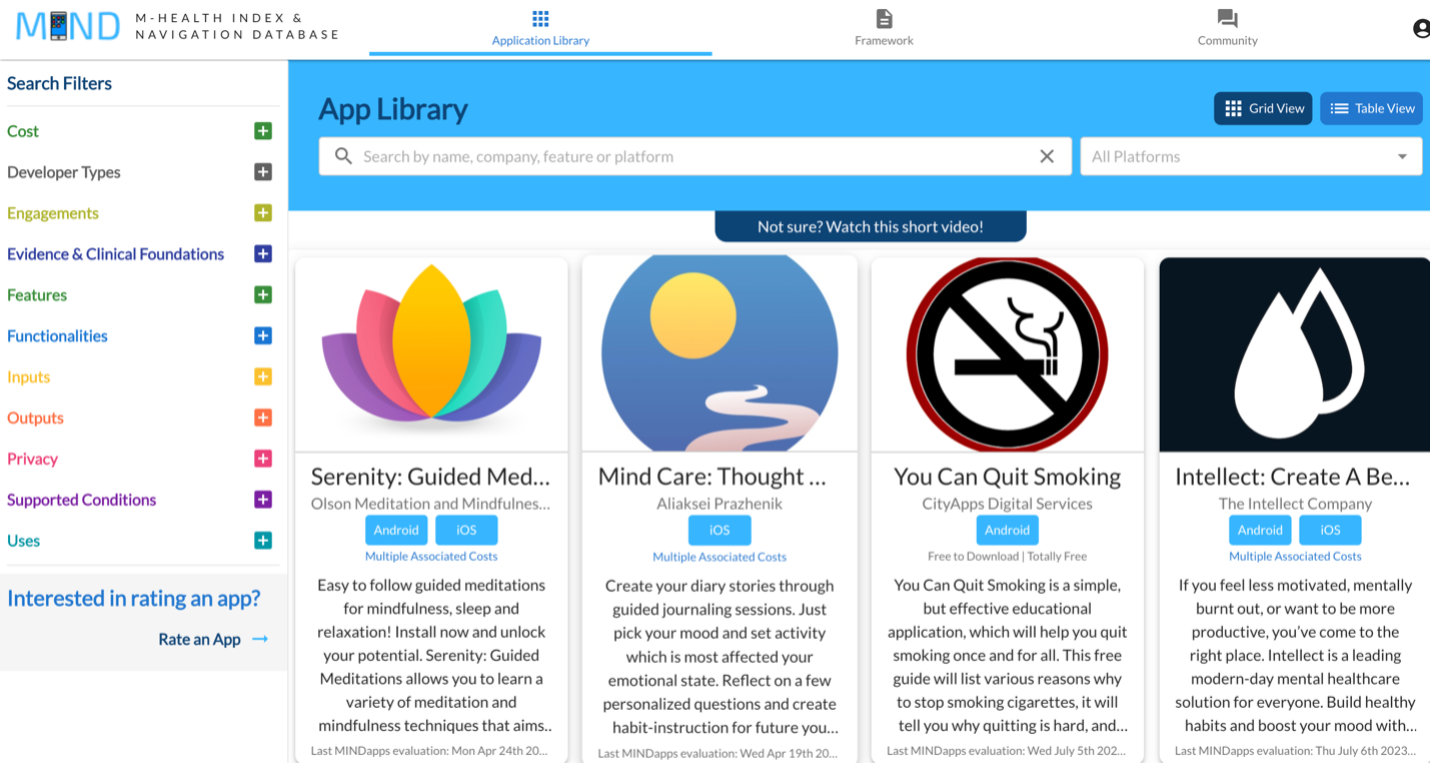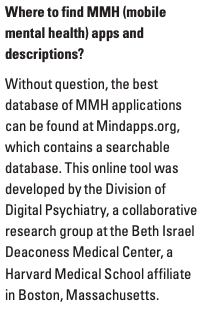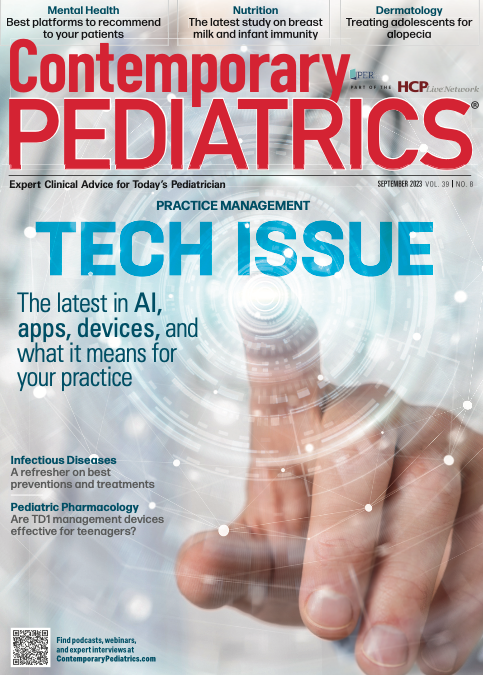Mobile mental health apps: Should we recommend them?
A look at the advantages and limitations of these platforms.
Mobile mental health apps: Should we recommend them? | Image Credit: © New Africa - © New Africa - stock.adobe.com.

Following the release of the iPhone in 2007 and the introduction of the App Store in 2008, mobile health care applications eventually appeared that were designed to help patients count calories, track exercise, and monitor chronic medical conditions such as diabetes and asthma. In 2023, with so many people experiencing mental health problems, it is no wonder that there are now over 10,000 mobile mental health (MMH) applications available for download.1
This article will provide an overview of MMH applications. When patients ask your opinion, pediatricians should be aware of their advantages as well as their limitations.
Mental health problems in pediatric patients
According to the CDC, 9.8% of US children aged 3 to 17 years have been diagnosed with attention deficit/hyperactivity disorder (ADHD), 9.4% have been diagnosed with anxiety, 8.9% have been diagnosed with behavior problems, and 4.4% have been diagnosed with depression.2 In addition, according to survey data from high school students in 2019, approximately one-third reported persistently feeling sad or hopeless, and approximately 1 in 5 had seriously considered attempting suicide.3 By 2018, suicide was the second leading cause of death for people aged 10 to 24 years.3
In 2021, the American Academy of Pediatrics joined with the American Academy of Child and Adolescent Psychiatry and the Children’s Hospital Association to declare a national emergency in children’s mental health.4 Nationwide, there are inadequate resources for children with mental health problems to receive much-needed counseling services. Often children who require inpatient psychiatric services are subject to waits of many days before a bed becomes available.
Online mental health services and MMH applications
Because there can be wait times of many months for in-person therapy, parents, who have come to trust health care applications on their smart devices, may consider using MMH online services in lieu of in-person counseling. Talkspace.com, Betterhelp.com, and many others offer online counseling services at half the cost of in-person counseling. These generally offer a combination of online video counseling, chat, and text services, as well as app-accessible resources. Online counseling services have been proven effective in various studies.5 In my own experience, few parents have availed themselves of these, intimidated by their cost ($50 to $80 per session with most insurances not covering services), and question of efficacy. There are also privacy concerns as some companies have been accused of sharing patient data with advertisers.6
Over the past few years MMH applications have grown in popularity, and “top MMH apps” is a frequent Google search. In my opinion, reviews from nonmental health professionals are of little real value for patients as they are quite subjective. There have been many studies looking at the efficacy of MMH apps for depression, anxiety, posttraumatic stress disorder, and social phobia. Metanalyses have shown they are effective for these mental health conditions.7-10
However, an enlightening study showed that only a very few MMH applications are downloaded and used with regularity.11 Three of the most popular apps for depression are Youper, Wysa, and Headspace, and the top 3 apps for anxiety are Calm, Headspace, and Youper. In the study, these few apps were responsible for 90% of active users, with millions of monthly users. By comparison, other applications had fewer than 10,000 users per month. They also noted that 63% of depression apps and 56% of anxiety apps had no active users. The authors concluded that applications that required a good deal of effort are less likely to gain and keep many active users. In contrast, applications that provide immediate relief (such as relaxation or mindfulness) are more popular and have continued use. To reiterate, while there are many MMH applications available, and they are effective for treating mental health problems, few patients use them regularly.
Digital therapeutics
Over the past few years, a subset of MMH applications has emerged, specifically, digital therapeutics (DTx) applications, which have been given FDA approval following publication of clinical trials in peer-reviewed journals. Many startups that have developed DTx applications seek to distinguish themselves from the competition in order to expedite revenue generation. Few DTx applications are covered by insurance, and some are expensive. One can question this strategy to position a MMH application as a DTx, as 1 DTx company, Pear Therapeutics, that developed DTx applications for opioid and substance abuse, has gone bankrupt.12
While there are many DTx applications available, most target adult patients, with only a handful intended for use by pediatric patients. Below are the few pediatric applications a provider might consider prescribing. I am not recommending them as an alternative to traditional therapy, which often includes medication management and counseling. Information is available on the applications’ websites listing the studies supporting their use. Some are quite compelling.

· EndeavorRX is an application that gamifies the treatment of pediatric patients 8 years and older with ADHD. It may be used as an adjunct to medication management or behavioral therapies or used as the only treatment. Patients play games on their smart device that get more difficult as the game progresses. A clinical trial showed significant improvement that continues even after the treatment period has ended.13 The application costs $99 per month and is not covered by insurance. There is a version of EndeavorRX called EndeavorOTC that requires no prescription and targets only adults. It costs about $10 per month.
· Freespira has been available for several years as a treatment option for adolescents with panic disorders including posttraumatic stress disorder and other disorders with panic as a prominent feature (ie, generalized anxiety disorder). Users receive a device and tablet that measure respiratory rate and expired CO2. Using the application and monitor, users learn to deal with and prevent panic attacks by controlling their respiratory rate and depth of breaths. Studies have shown this to be very effective even months after the 28-day treatment period ends.14 The application costs $2000 and the device and tablet must be returned following therapy. Few insurance companies currently cover its use.
· SparkRx is a free MMH application intended for use by pediatric patients aged 13 years and older with depression. As of this writing, the application has received FDA authorization for distribution via the FDA’s Enforcement Policy for Digital Health Devices for Treating Psychiatric Disorders During the Coronavirus Disease 2019 (COVID-19) Public Health Emergency. Full FDA approval is forthcoming. The application provides a several-week depression treatment program based on cognitive behavioral therapy and behavior activation therapy.15 A similar application for treating anxiety is in development.


Should we recommend MMH applications?
MMH applications can be effective for patients with mental health disorders, but only if we can persuade our patients to use them regularly. Applications that provide immediate relief are more likely see continued use. In addition, DTx applications show promise in helping to treat patients with depression and anxiety and some other health concerns, but few currently are available for pediatric patients.
For more from the September issue of Contemporary Pediatrics®, click here.
References:
1. Torous J, Andersson G, Bertagnoli A, et al. Towards a consensus around standards for smartphone apps and digital mental health. World Psychiatry. 2019;18(1):97-98. doi:10.1002/wps.20592
2. Data and statistics on children’s mental health. Centers for Disease Control and Prevention. Reviewed March 8, 2023. Accessed July 18, 2023. https://www.cdc.gov/childrensmentalhealth/data.html
3. Bitsko RH, Claussen AH, Lichstein J, et al. Mental health surveillance among children - United States, 2013-2019. MMWR Suppl. 2022;71(2):1-42. doi:10.15585/mmwr.su7102a1
4. American Academy of Child & Adolescent Psychiatry. A declaration from the American Academy of Child and Adolescent Psychiatry, American Academy of Pediatrics, and Children’s Hospital Association. Accessed August 1, 2023. https://www.aacap.org/App_Themes/AACAP/Docs/press/Declaration_National_Crisis_Oct-2021.pdf accessed 7/18/23
5. Hull TD, Malgaroli M, Connolly PS, Feuerstein S, Simon NM. Two-way messaging therapy for depression and anxiety: longitudinal response trajectories. BMC Psychiatry. 2020;20(1):297. doi:10.1186/s12888-020-02721-x
6. Germain T. Mental health apps aren’t all as private as you think. Consumer Reports. March 21, 2021. Accessed July 28, 2023. www.consumerreports.org/health/health-privacy/mental-health-apps-and-user-privacy-a7415198244/
7. Wang K, Varma DS, Prosperi M. A systematic review of the effectiveness of mobile apps for monitoring and management of mental health symptoms or disorders. J Psychiatr Res. 2018;107:73-78. doi:10.1016/j.jpsychires.2018.10.006
8. Firth J, Torous J, Nicholas J, Carney R, Rosenbaum S, Sarris J. Can smartphone mental health interventions reduce symptoms of anxiety? A meta-analysis of randomized controlled trials, J Affect Disord. 2017;218:15-22. doi:10.1016/j.jad.2017.04.046
9. Firth J, Torous J, Nicholas J, et al. The efficacy of smartphone-based mental health interventions for depressive symptoms: a meta-analysis of randomized controlled trials. World Psychiatry. 2017;16(3):287-298. doi:10.1002/wps.20472
10. Linardon J, Cuijpers P, Carlbring P, Messer M, Fuller-Tyszkiewicz. The efficacy of app-supported smartphone interventions for mental health problems: a meta-analysis of randomized controlled trials. World Psychiatry. 2019;18(3):325-336. doi:10.1002/wps.20673
11. Wasil AR, Gillespie S, Patel R, et al. Reassessing evidence-based content in popular smartphone apps for depression and anxiety: developing and applying user-adjusted analyses. J Consult Clin Psychol. 2020;88(11):983-993. doi:10.1037/ccp0000604
12. Hagen J. Pear Therapeutics files for bankruptcy. Mobile Health News. April 7, 2023. Accessed July 28, 2023. https://www.mobihealthnews.com/news/pear-therapeutics-files-bankruptcy
13. Kollins SH, Childress A, Heusser AC, Lutz J. Effectiveness of a digital therapeutic as adjunct to treatment with medication in pediatric ADHD. NPJ Digit Med. 20214(1):58. doi:10.1038/s41746-021-00429-0
14. Meuret AE, Wilhelm FH, Ritz T, Roth WT. Feedback of end-tidal pCO2 as a therapeutic approach for panic disorder, J Psychiatr Res. 2008; 42(7):560-568. doi:10.1016/j.jpsychires.2007.06.005
15. Forman-Hoffman VL, Nelson BW, Ranta K, Nazander A, Hilgert O, de Quevedo J. Significant reduction in depressive symptoms among patients with moderately-severe to severe depressive symptoms after participation in a therapist-supported, evidence-based mobile health program delivered via a smartphone app. Internet Interv. 2021;25:100408. doi:10.1016/j.invent.2021.100408
16. What is a DTx? Digital Therapeutics Alliance. Accessed July 28, 2023. https://dtxalliance.org/understanding-dtx/what-is-a-dtx/

Newsletter
Access practical, evidence-based guidance to support better care for our youngest patients. Join our email list for the latest clinical updates.